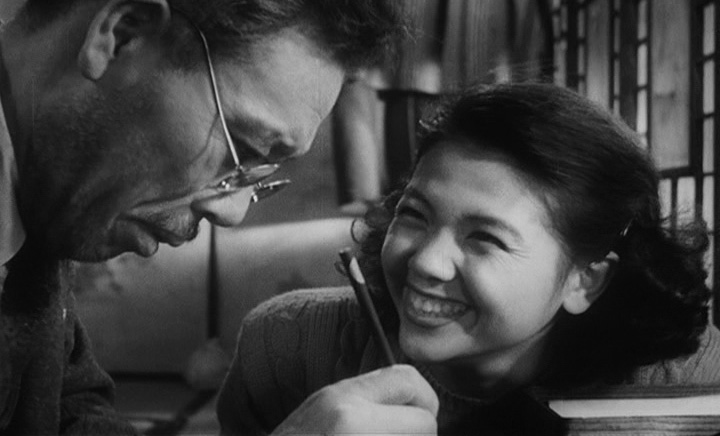
It was exactly 85 years ago, on June 29 1930, that actress Miki Odagiri (1930-2006) was born. Best known for her role in Akira Kurosawa‘s Ikiru (1952), Odagiri appeared in around 25 films and numerous television dramas during a film career which lasted for over thirty years.
Although she had appeared in Satsuo Yamamoto‘s Pastoral Symphony (1938) at the age of eight, Ikiru was Odagiri’s first real time as an actress. The 22-year-old theatre student wasn’t actually seriously seeking a film role when she auditioned for Ikiru, being there mainly to accompany a friend who was auditioning for another role. But Odagiri’s natural performance pleased Kurosawa, who ended up hiring her for the major role of Toyo, the young co-worker whose enthusiasm and love of life spark a transformation in the dying bureaucrat protagonist played by Takashi Shimura.
The film also gave the actress a new name. Born as Miki Santō, she had earlier gone by the name Kimiko Fujiyama, but now began to use the family name of her character in Ikiru, Toyo Odagiri. After her marriage to actor Shōji Yasui (The Burmese Harp, Kokoro, The Human Condition), she took on her husband’s legal family name, becoming Miki Yomo, although she continued to use Miki Odagiri as her actress name.
Ikiru was the only Kurosawa film in which Odagiri appeared and her later films are far less known. The bulk of her big screen career was in fact fairly short as it took place between 1952 and 1958, after which she appeared almost solely in television dramas.
Odagiri died of heart disease in 2006 at the age of 76.






She is wonderful in Ikiru – its a really funny, very natural performance which I think very effectively gets to the essence of why Watanabe is so drawn to her. Its interesting that despite how busy she seems to have been in the few years after Ikiru, she never seems to have had many major roles. Perhaps simply because she wasn’t conventionally good looking? It is odd though that Kurosawa never used her again, but I suppose this could have been down to contractual or career reasons.